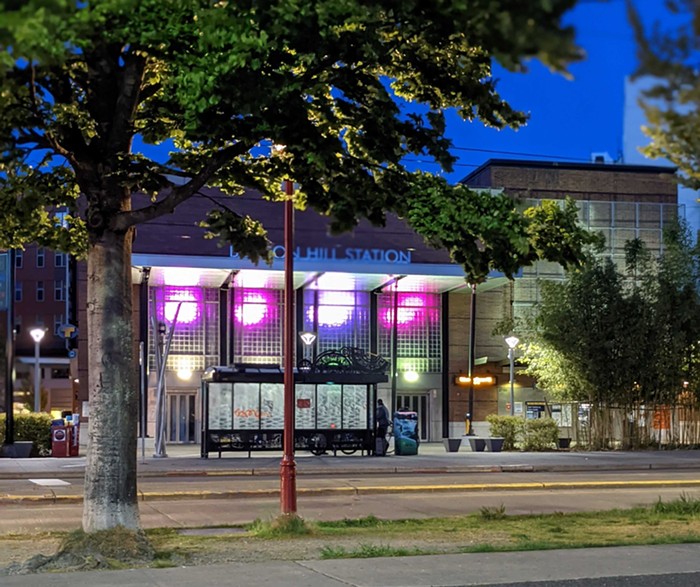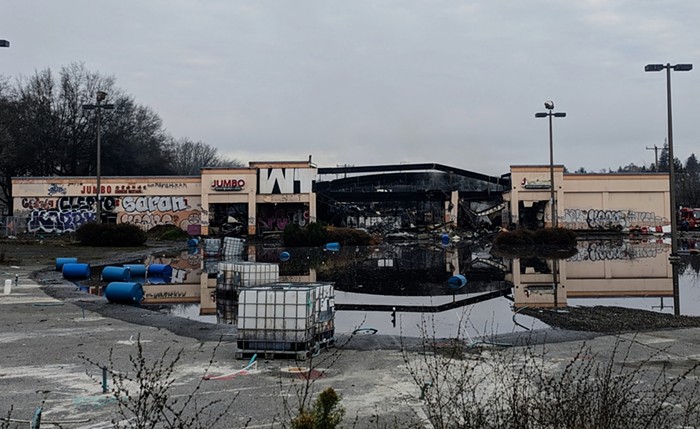
A couple of months ago, on the heels of fantastic organizing for housing at Fort Lawton near Discovery Park, we formed Affordable Talaris. We want to ensure that Seattle uses all of its land for the most equitable purposes and the most just outcomes. We believe Seattleites can work together to address racial and economic desegregation. We passionately support development without displacement.
Since 1994, Seattle’s incredible growth has been concentrated in urban villages comprising just 11 percent of the city’s land. Of the new housing in 2017, 88 percent, went to urban village and centers. While low-income neighborhoods have gentrified and renters have been displaced by the thousands, Seattle's wealthiest neighborhoods have seen little change and experience low rates of displacement.
The latest symbol of land use inequity is the Talaris Conference Center, 18 acres of undeveloped land in Laurelhurst. Despite sitting in the heart of a growing city in desperate need of affordable housing, the Conference Center is slated to host 60 suburban-style homes—starting at 2 million each — with no affordable units whatsoever. This is an insult to the teachers, nurses, baristas, working musicians and UW staff who cannot afford to live in the city where they work. Any housing built at Talaris right now will not be a part of the Mandatory Housing Affordability (MHA) program and will not contribute funds to build affordable housing.
Seattle’s land use battles include many attempts to limit workforce apartments and permanently affordable housing from being built in wealthy enclaves. The City of Seattle has supported inequitable land use policies that come at the expense of the majority of Seattleites who don’t own their homes. Many communities in South Seattle, the Central District, and Chinatown-International District were kept out of communities in Northeast Seattle through redlining and racial covenants. It is long overdue for our land use policies to address the generational harm inflicted on these communities.
If you've been to a land use hearing in the last 10 years, you've no doubt heard homeowners declare that they're not against development, but they want to do it right. Affordable Talaris organizers believe development should provide many more people with the opportunity to live near sought-after schools, abundant open space, grocery stores, a Bus Rapid Transit (BRT) line, two major regional hospitals, the most useful bike trail in the city, and a major state employer, the University of Washington. During a global climate crisis we want many more people to be able to walk, bike, or bus to the Husky Stadium LINK light rail station. Building much more housing on or near Talaris is a chance to do development right.
Lack of permanently affordable and workforce housing in the current Talaris plan means more displacement in places like South Seattle where communities of color don't have the resources to fight with lawyers. Our housing solutions can be fair and just with considerations for geographic equity.
Laurelhurst residents have seen their home values—and their net worth—rise by more than $700,000 in the last decade. Why should Seattle's richest neighborhoods be allowed to reserve spots for only the wealthy? We collectively scratch our heads and ask each other, “It doesn’t have to be this way, does it?”
Let’s work together for more welcoming, eco-friendly, sustainable, and equitable cities. Once luxury houses are built at Talaris, we are stuck with them for generations. Seattle will regret it. We urge the City Council to deny permits to Quadrant for the current proposal. Let’s implement an equitable development outreach plan. This city can't afford to let inequitable developments move forward on lots this large without evaluating how more people, more jobs, and more students impact the need for homes in Northeast Seattle. Let’s ensure that more people have access to the natural beauty and historic buildings at Talaris and beyond. The best time to act on an equitable development plan for Talaris was many years ago, but it is not too late to act now.
Laura Loe Bernstein and Myra Lara are housing advocates and members of Affordable Talaris.


















